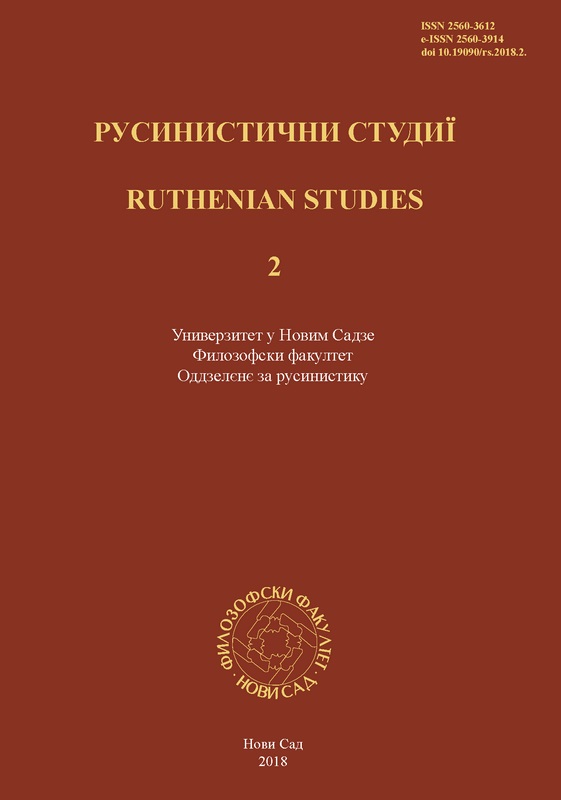Формованє и пременки у деклинациї меновнїкох у руским язику (єднинa меновнїкох женского роду)
Coming Into Being and Changes in the Noun Declension System in the Ruthenian Language (Example Being Feminine Nouns)
Author(s): Oksana Timko ĐitkoSubject(s): Morphology, Lexis, Eastern Slavic Languages, Philology
Published by: Филозофски факултет, Универзитет у Новом Саду
Keywords: declination; nouns; ending; base; gender
Summary/Abstract: In the Proto-Slavic language, the noun declension was organized upon the noun bases. The declension system, as inherited from the Proto-Indo-European, had 11 changes: seven vowel changes and four consonant changes. Due to various phonetic and morphological changes that affected each of the contemporary Slavic languages thorough the centuries of their separate existence, the noun declension differs in each of them to some degree. Besides, throughout the further development of Slavic languages, after the disintegration of the Proto-Slavic community, such Proto-Slavic organization of the noun declension was replaced by a system of paradigms based on the grammatical gender. Our goal is to see how the declension system in the Ruthenian language was formed as compared with the one in the Ukrainian and the Croatian language. We shall compare the feminine nouns in these two languages and see how former declensions according to various bases got adapted nowadays. We shall pay special attention to dialects of these languages and see whether the differences on the dialectal level are smaller.
Journal: Русинистични студиї
- Issue Year: 2018
- Issue No: 2
- Page Range: 49-62
- Page Count: 14
- Language: Ukrainian

